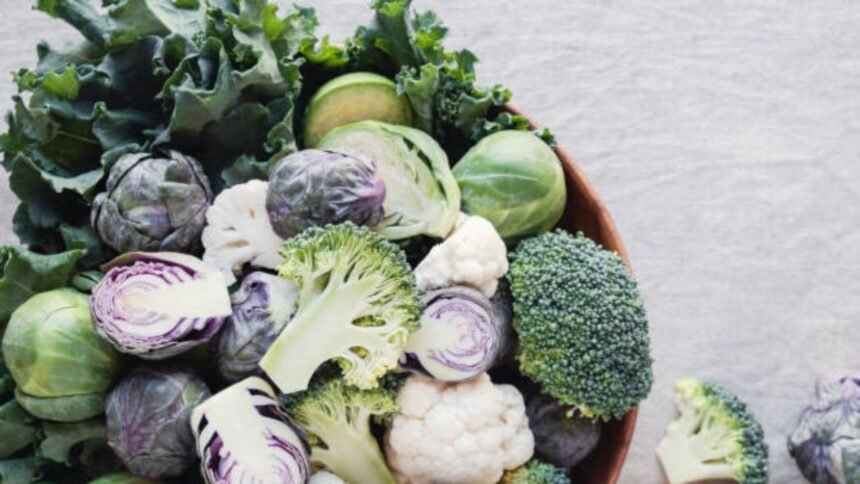Cruciferous vegetables, belonging to the Brassicaceae family, are known for their unique flavors, versatility, and health benefits. Common examples include broccoli, cauliflower, kale, Brussels sprouts, cabbage, and radishes. These vegetables are widely celebrated for their nutritional value and potential health-promoting properties. However, like any food group, they come with both positive and negative effects. This article will explore the benefits and drawbacks of cruciferous vegetables.
Nutritional Profile
Cruciferous vegetables are low in calories but rich in essential nutrients. They are excellent sources of vitamins C, E, and K, as well as folate and several B vitamins. They also provide dietary fiber, which is crucial for digestive health. Additionally, cruciferous vegetables contain an array of phytonutrients, including glucosinolates, which have been studied for their anti-cancer properties. These compounds give cruciferous vegetables their distinctive bitter flavor and play a role in the body’s detoxification processes.
Health Benefits
- Cancer Prevention: One of the most well-researched benefits of cruciferous vegetables is their potential role in cancer prevention. Studies suggest that the glucosinolates found in these vegetables may help inhibit the growth of cancer cells. These compounds can be converted into biologically active forms that have been shown to have anti-cancer effects, particularly against lung, breast, and prostate cancers.
- Heart Health: Regular consumption of cruciferous vegetables is associated with a lower risk of heart disease. Their high fiber content helps reduce cholesterol levels, while the antioxidants present in these vegetables may protect against oxidative stress and inflammation, both of which contribute to cardiovascular diseases.
- Weight Management: Due to their low caloric content and high fiber levels, cruciferous vegetables can aid in weight management. Fiber helps promote feelings of fullness, which can reduce overall calorie intake. Including these vegetables in meals can be a strategic approach to maintaining a healthy weight.
- Digestive Health: The fiber found in cruciferous vegetables is beneficial for digestive health. It helps regulate bowel movements, prevents constipation, and supports a healthy gut microbiome. Additionally, some studies suggest that the compounds in these vegetables may help protect the stomach lining and reduce the risk of digestive disorders.
- Bone Health: Certain cruciferous vegetables, like broccoli, are good sources of calcium and vitamin K, both of which are essential for maintaining healthy bones. These nutrients can help enhance bone density and reduce the risk of fractures.
Potential Negative Effects
- Goitrogens: Cruciferous vegetables contain compounds called goitrogens, which can interfere with thyroid function by inhibiting the uptake of iodine. For individuals with existing thyroid issues or those who consume large quantities of these vegetables, this could potentially lead to goiter or exacerbate hypothyroidism. Cooking these vegetables can help reduce goitrogen levels and mitigate their effects.
- Digestive Discomfort: While the fiber in cruciferous vegetables is beneficial for digestion, it can also lead to bloating and gas in some individuals, especially if they are not accustomed to a high-fiber diet. This is due to the presence of certain carbohydrates, such as raffinose, that can be difficult to digest. Gradually increasing the intake of these vegetables can help the digestive system adapt.
- Drug Interactions: Some cruciferous vegetables may interact with certain medications, particularly blood thinners like warfarin. Vitamin K, abundant in vegetables like kale and Brussels sprouts, can affect the efficacy of these medications. Individuals taking such medications should consult with a healthcare provider about their cruciferous vegetable consumption.
Conclusion
Cruciferous vegetables are a powerhouse of nutrition, offering a wide array of health benefits, from cancer prevention to improved heart health. Their rich nutrient profile and unique compounds make them a valuable addition to a balanced diet. However, it’s essential to be mindful of their potential drawbacks, particularly for individuals with specific health conditions or those taking certain medications. To maximize their benefits while minimizing negative effects, it’s advisable to consume a variety of cruciferous vegetables in moderation and to prepare them appropriately, such as steaming or cooking, to reduce goitrogens and improve digestibility. By incorporating these nutrient-dense foods into a well-rounded diet, individuals can support their overall health and well-being.

